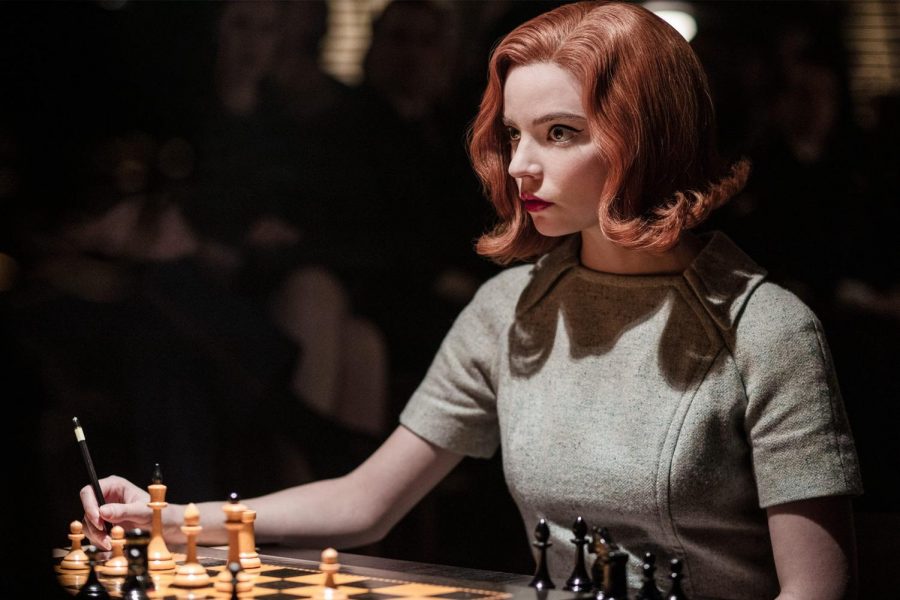Netflix It: The Queen’s Gambit
November 11, 2020
The new Netflix hit-series “The Queen’s Gambit” is based on a 1983 fiction novel of the same name by Walter Tevis. It is set to be adapted onto the screen by a shocking collaboration between Heath Ledger and Allan Schiach.
But, Ledger’s passing in 2008 stopped production and what could have been his debut as a director.
At the age of nine, Beth Harmon (Anya Taylor-Joy) suffered childhood trauma when she lost her mother in a tragic accident. She was sent to Methuen Home for Girls; an orphanage where her unique talent for chess blossomed.
Harmon is different from the other girls, who were taught to prioritize etiquette, whereas she spent her time with a lonely janitor who taught her the principles of chess in a basement.
The series begins to get darker as Harmon becomes addicted to medication given to the orphanage children. Though she slowly creates a dependency on the drugs, it gives her an astounding imagination of possible chess plays in her mind.
Harmon begins to unleash her skills at a high school chess club. Many of the boys underestimated her because of her gender but Harmon quickly wins the matches against all of them to their disbelief.
And this is just the beginning.
A few years later, she is adopted by a semi-welcoming couple. This allows Harmon to come back to her obsession and become the best female chess player with only one obstacle in her way: “The Russian.”
The suspenseful show demonstrates real-world issues of drug addiction, alcoholism, tragedy, mental health and the mind of a child leading up to her womanhood.
While the show centers around the game of chess, you don’t have to be a player of the game in order to understand some of the aspects of the story. As you follow the story-line and get to know the different characters, you develop a connection to them.
Watching Harmon’s thought-out chess moves based on her life offers a sense that her wins are the audience’s wins and her loses are the audience’s losses. That’s what keeps viewers on the edge of their seats. Before you know it, your eyes are mesmerized to the screen and you’ll keep watching until the very end without knowing.




